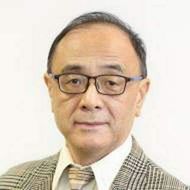Are Putin and Xi Jinping forging a new chapter in international relations?
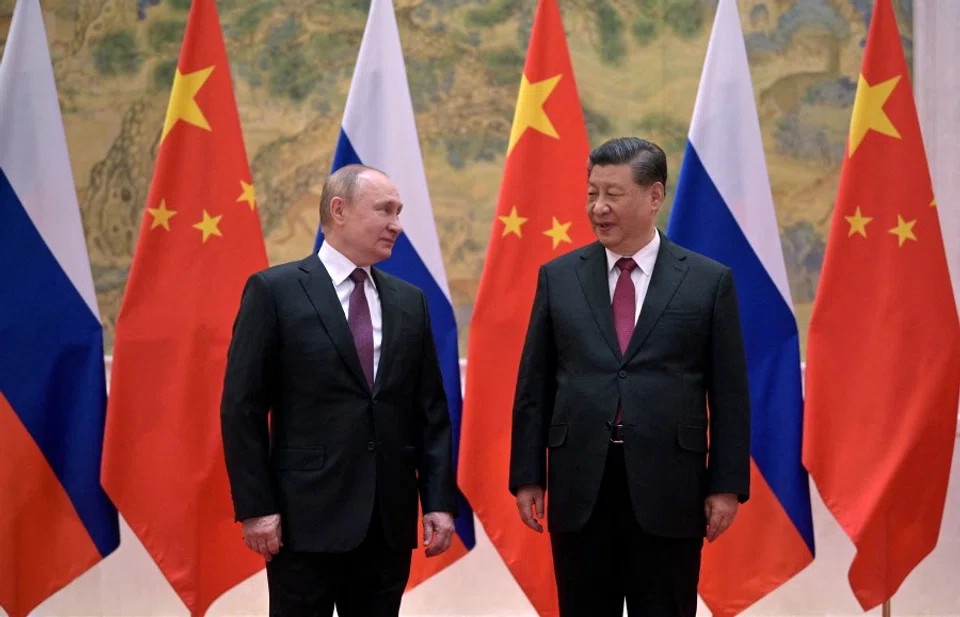
The first reaction of many Chinese netizens to Putin's campaign of aggression in Ukraine is that it is a "venting of one's spleen". For a long time, China and Russia have shared a similar sentiment that "the West has gone too far in its bullying!" There is no official China-Russia alliance, yet the two peoples' sentiments are close to being one. Uniting their views about important global issues is the Russia-China joint statement released before the Winter Olympics, in which China's foreign ministry declared that the friendship between China and Russia "has no limits" and that their relations are "down to earth". A new axis appears to have taken shape.
Since the Ukraine war broke out, however, on reflection, something appears amiss to China. First, China feels somewhat duped. Second, a major power sending its troops to another country does not exactly conform to the traditional Chinese sense of righteousness. Finally, Putin's large-scale military operation is baffling.
Has the "great leader model" gone awry?
Putin's declared goal and the enormous difficulties he has faced on many fronts has made his military operation seem far-fetched. Even Ukrainian President Zelenskyy did not believe it until moments before war broke out. Instead, he suspected that the US had ulterior motives for its warmongering behaviour and demanded evidence of the impending Russian invasion.
After the war broke out, the world questioned Putin's judgment and soundness of mind. In the event, the invasion has isolated Russia, united the West and cast a pall over Russia's future. Putin even labelled the Ukrainian president, who is of Jewish descent, as the leader of a gang of "drug addicts and neo-Nazis", and hastily threatened to use nuclear weapons. Former Russian Prime Minister Mikhail Kasyanov has criticised Putin as "irrational" and "insane", and anti-war demonstrations have occurred in dozens of Russian cities.
Under these circumstances, it is very likely that Putin is living in a bubble of flattery and one-sided information from those around him.
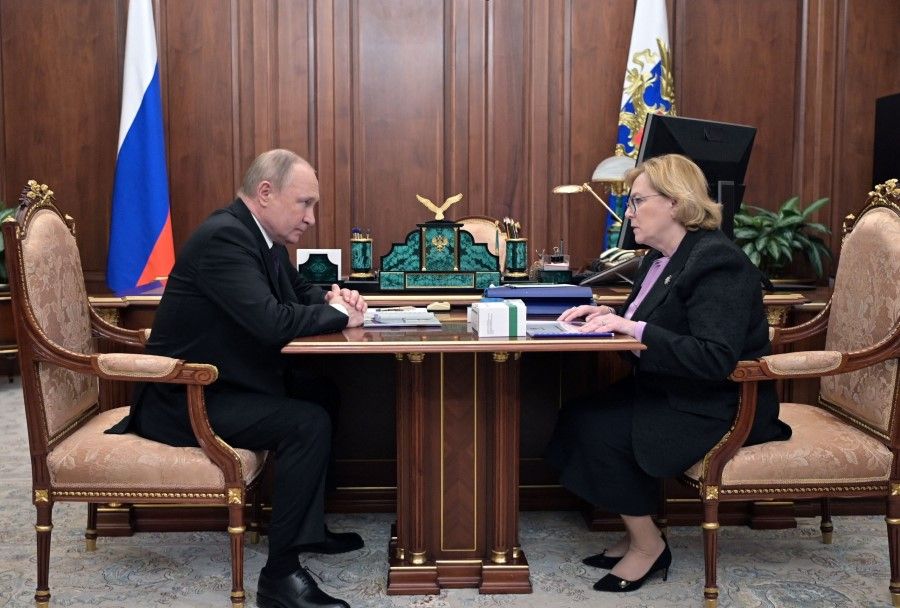
Evidently, despite the fact that military action gravely affects Russia's future, Putin's decision to push ahead did not garner sufficient consensus, was poorly planned and even considered dictatorial. Putin has publicly reprimanded the head of Russia's Foreign Intelligence Service on TV. He also often keeps a distance from his colleagues in media appearances, as if adhering to the principle of Mao-era revolutionary operas that seek to shine the spotlight on the protagonists, the heroes among the protagonists, and the hero of heroes with increasing intensity (样板戏"三突出").
Under these circumstances, it is very likely that Putin is living in a bubble of flattery and one-sided information from those around him. Previous successes in external military interventions abroad have made him over-confident, causing him to underestimate the difficulties of invading Ukraine, Europe's second largest country in land area, and the international response to the invasion.
Having been in power for a long time tends to make the leader full of himself, arrogant and imperious. It will inevitably beat all others into obedience, subservience and "absolute loyalty". There will be no more meaningful policy discussion. Once the leader makes a mistake, the whole situation unravels. This is the common failing of the "great leader model". Having regarded oneself as the great leader, the leader will never admit mistakes and will rather die than to accept failure. This is the common fate of "the great leader".
It is still premature to ascertain whether this will be Putin's fate, as he has always been astute, meticulous, decisive and practical. Still, the best of leaders can succumb to perversion after wielding unfettered power for a long time. If Putin has ensnared himself in the role of "the great leader" and dignified concessions are not forthcoming in a situation where the stakes are elevated, then it is possible that he will risk everything and the world may face a tragic nuclear war.
Both are the main targets of the Cold War and neither has shaken off its effects.
China and Russia under siege
There are reasons for China's empathy for the Russian experience. In many ways, the circumstances in China and Russia are very similar in their relations with the West. Both are the main targets of the Cold War and neither has shaken off its effects.
NATO's pressures on Russia are similar in effect to the various US manoeuvrings around China. Russia has endured the anxieties of NATO's eastward expansion for 30 years, whereas China has had to deal with the security pacts, alliances and encirclement resulting from the Cold War. The Coming War On China, a 2016 documentary by Australian-British scholar John Pilger, vividly illustrates the dire military situation surrounding China.
Putin believes that the root cause of the conflict between Russia and the West is that the latter does not wish to see a strong and independent Russia. The same sentiment is even more applicable to China.
Russia's demands of Ukraine are similar to China's demands of Taiwan, which are based on history, ethnicity, culture, national security and geopolitics.
For reasons yet to be clearly understood, China and Russia lack affinity among their neighbouring countries. Many fear and loathe them and would find another backer as soon as the opportunity arises. De-Russianisation and de-sinicisation are common in these neighbouring countries. Russia's demands of Ukraine are similar to China's demands of Taiwan, which are based on history, ethnicity, culture, national security and geopolitics. Like Ukraine to Russia, Taiwan is regarded as belonging to China. In this sense, international rules are not unequivocally applicable and aggression is regarded to be justifiable. For that matter, China's claims in the South China Sea are also based on history.
Since the Cold War, ideology has become a new feature of modern international relations. It adds a new dimension of "right and wrong" in addition to power relations. China and Russia are under siege for the important reason that they are regarded to be on the wrong side of history by being authoritarian and not democratic. Ideology complicates global politics with moral judgment. This significantly increases the pressures on China and Russia because small nations that traditionally roll with the punches have the moral courage now to join in to exert pressure, with some even becoming eager instigators.

It is peculiar that a nuclear power like Russia is increasingly driven into a corner and forced to fight with its back to the wall. China has had a similar experience since Trump's days as US president.
Retaliation by cornered great powers is a certainty and devastating, yet many have failed to foretell and are shocked by it. This is because political correctness has muddled reasoning. NATO's aggressive eastward expansion has forced Russia into hitting back. If pressurised by the US-led anti-China alliances around China in the future, the probability of China taking similar actions is very high.
With Russia being a top-tier nuclear power and China accelerating the build-up of its nuclear arsenal, both countries enjoy a degree of impunity when acting aggressively. While the US is less likely to directly participate in conflicts for precisely the same reason, it is more likely to engage in proxy wars through neighbouring countries and regions. The Central and Eastern European (CEE) and Baltic countries including Poland, the Czech Republic, Georgia and Ukraine fear and loathe Russia; similarly, Taiwan, Japan, South Korea, Vietnam, the Philippines, India, Mongolia and Australia harbour strong anti-China sentiments. These countries and territories will be goaded to the forefront of conflicts.
A revolution in strategic culture?
China and Russia are nuclear powers and permanent members of the UN Security Council. Despite Russia's GDP being equivalent only to that of Guangdong province and its conventional military strength and population being only one-third and one-tenth respectively of China's, it thrives in the global arena. Imagine the state of our world if China acts with all its means but with Russia's demeanour.
With envy, the people in China regard Russians as Cossack warriors. Russians have always considered themselves a part of Western culture and adept at dealing with the West. In 2000, when Putin, who was the acting president of Russia at the time, met US Secretary of State Madeleine Albright in Beijing, he said, "Sure, I like Chinese food. It's fun to use chopsticks ... but this is just trivial stuff. It's not our mentality, which is European. Russia has to be firmly part of the West."
Yet, the West has always regarded Russians as barbarians, saying, "Scratch a Russian and you find a Tartar." Perhaps, the Russians have inherited the bravery and ferocity of the warriors of the Mongolian Empire that swept through Eurasia. However, China has always been an agrarian civilisation. Reserved and conservative, the Chinese have never thrived on the world stage, except to "counterattack in self defence" at its borders.
Today, China is industrialised with its economic interests covering the expanse of the world, which brings its security interests to all corners of the globe as well. The suppression of China's emergence by the West has motivated China to develop the capability of global power projection. This gives rise to the need for China to transform its strategic culture. If Russia achieves its goals in the Ukraine war, even if they are as modest as gaining the respect from the West as equal dialogue partners, it will motivate China to act more boldly.
The greatest impact of the Ukraine war in the Indo-Pacific region may turn out to be China completely breaking free from its traditional culture to become a player like Putin's Russia on the global stage.
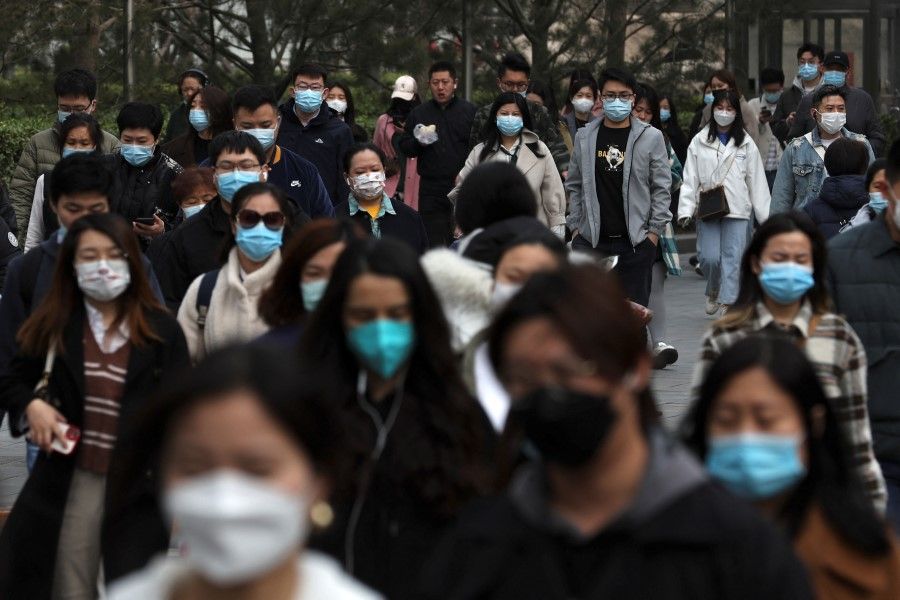
In reality, a revolution in China's strategic culture has been underway for several years under President Xi Jinping. China has abandoned the adage "to conceal one's strength and bide one's time" and embarked on activities such as building islands in the South China Sea, establishing an air defence identification zone (ADIZ) in the East China Sea, confronting the Indian forces at the Sino-Indian border, adopting wolf warrior diplomacy and promoting Chinese propaganda globally. These are associated with its increasing might, but the manner of exerting this might depend on China's traditional culture and national character. The greatest impact of the Ukraine war in the Indo-Pacific region may turn out to be China completely breaking free from its traditional culture to become a player like Putin's Russia on the global stage.
The biggest difference between the two countries is that, unlike China, Russia does not have close economic and trade ties with, and hence is not interdependent upon, countries around the world. Thanks to the former Soviet Union, the Russian economy is naturally decoupled from the global economy. If Western economies successfully decouple from China, it will also thrust China into a similar position that is no longer worried about repercussions.
Apart from playing the role of the spoiler and safeguarding its own security, it is difficult for Russia to play a constructive role in international relations. China, however, has the economic wherewithal to fully participate in shaping the global order. If the two cooperate closely, they would have both means and the impetus to act to become a major driving force in the world.
A new chapter by Putin and Xi
As stated in the recent joint declaration, China and Russia share the same fundamental views on the global order. Putin and Xi are attempting to forge a new chapter in international relations using a common language revolving around the following three points.
First, both of them insist on mutual security as a fundamental principle of international relations, that is, one country's security cannot be obtained at the expense of the security of other countries. This is in essence Xi's "new security concept". Putin's invasion of Ukraine is based on this principle because he believes that the security of NATO members as a result of NATO's eastward expansion is at the expense of Russia's security.
Despite agreeing with and incorporating the principle of mutual security in international agreements (such as the 2010 Astana Commemorative Declaration of the Organization for Security and Co-operation in Europe), the West has ignored and trampled upon this principle for a long time. The lessons of the bloodshed in the Ukraine war are expected to accentuate this principle and its implementation, so as to change the dynamic of international relations.
The two leaders see so much eye to eye, and these are fundamental views on global order and human nature. Ironically, they echo the voices of many Western conservatives.
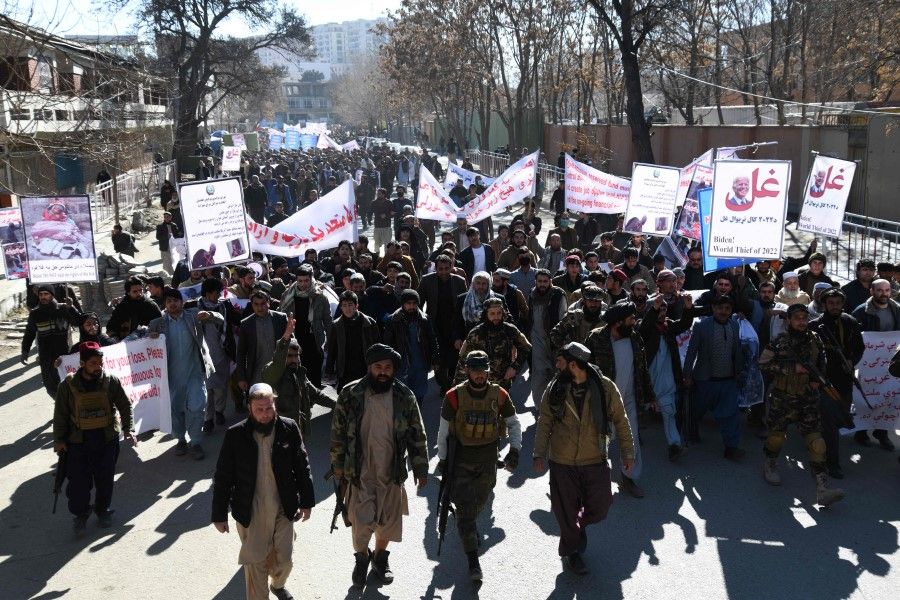
Second, the West has forcibly imposed liberalism and anti-terrorism all over the world, resulting in humanitarian disasters by bringing down regimes and causing paralysis of governance in Iraq, Syria, Libya, Afghanistan and others. Hundreds of thousands have died in wars and armed conflicts, and millions have been displaced and become refugees. In Putin's words: "... the result is bloody, unhealed wounds, ulcers of international terrorism and extremism."
Equally catastrophic are the colour revolutions instigated by the West. The West provides funding to NGOs to infiltrate the political powers of the countries concerned, manipulate elections and incite violent conflicts. According to Putin, during the 2014 "coup" in Ukraine, the US embassy provided protestors with up to US$1 million daily.
Third, Putin believes that the West uses "hypocritical liberal values" to destroy other countries' traditional values and corrupt the people from within. These values go against human nature and, together with the political correctness they engender, have caused extensive degeneration and deterioration in the Western countries themselves. Xi has targeted this when he went about rectifying ideology and public opinion immediately after taking office. In the 1980s, the Chinese Communist Party had embarked on the "Anti-Spiritual Pollution Campaign" to curb liberal ideas inspired by the West in China.
The two leaders see so much eye to eye, and these are fundamental views on global order and human nature. Ironically, they echo the voices of many Western conservatives. Intertwined in an unprecedented, peculiar way are the East and the West, the liberal left and the conservative right, and international and domestic politics, which will certainly impact significantly and extensively upon world politics.
Related: China's alliance with Russia is solidifying | Fifty years after Nixon's visit, is China tilting back towards Russia? | The importance of Russia in China's foreign relations | Claim of US bioweapons operation in Ukraine pushes China closer towards Russia | What if China and Russia join forces? | Did China miscalculate the Ukraine war?
